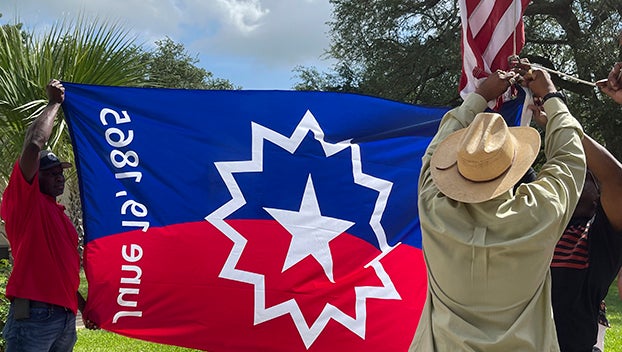For some victims, recovery’s not started
Published 8:51 am Wednesday, January 3, 2018
Five feet of rain fell on parts of Greater Port Arthur during Hurricane and Tropical Storm Harvey last August, but for many people here and elsewhere in the Golden Triangle, the worst was yet to come.
Destruction of their homes was followed by the frustration of dealing with government agencies not fully prepared to handle the most expensive storm in U.S. history. Harvey was not nearly as deadly though even more expensive than Hurricane Katrina; its effects on people’s lives continue to make personal impacts, drip by drip, as weeks and months pass.
That was explained by studies done by the Episcopal Health Foundation and the Kaiser Family Foundation, which this newspaper reported on extensively last month. The EHF said after additional review last week that poorer people victimized by Harvey are struggling most to gain help from agencies like the Federal Emergency Management Agency.
It’s not necessarily a result of neglect of or bias against the poor, EHF suggested. In some cases, poor people may be struggling to articulate their problems or may be hindered in understanding myriad official forms for assistance.
But additional reporting by NBC and others suggest some problems defy common sense. For example, they talked with a Rose City woman whose family intended to rebuild their home on their own property and a seemingly helpful FEMA dropped off a large trailer for living space while the rebuilding was to occur.
The problem? They dropped it on the woman’s lot in such an awkward and intrusive way that her family cannot begin rebuilding their permanent home. Nor will FEMA come and move the trailer. Nor is there a working telephone to seek a FEMA resolution.
“In the Golden Triangle area, the damage is much more significant and the recovery is going much more slowly. They could use way more resources,” Elena Marks, president and CEO of the EHF, said.
In some cases, smaller, more remote communities among the 41 most affected southeastern Texas counties are unable to access federal government assistance that would hasten the helping process for more people. So what are people to do?
Absent quicker, more concentrated efforts to provide at least temporary housing, new and unforeseen problems may arise. NBC’s reporting suggests storm victims who remain in the wind for help are experiencing frustration and a sense of helplessness that, in itself, is crushing their spirits like Harvey crushed their homes.
Nearly half of the people living in the Golden Triangle – Port Arthur to Beaumont to Orange – believe that the storm has affected their mental health adversely, far more than storm victims to their west. Drip, drip.
For FEMA, the next phase of help may get more difficult. But for some Golden Triangle people, recovery hasn’t started.




